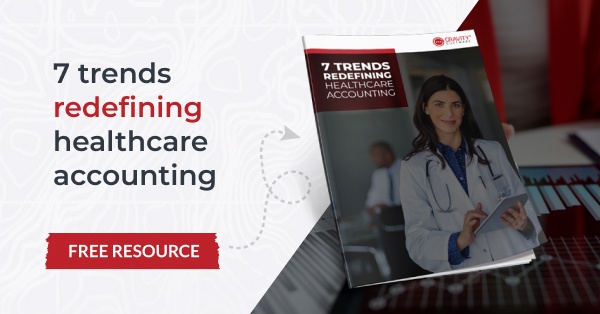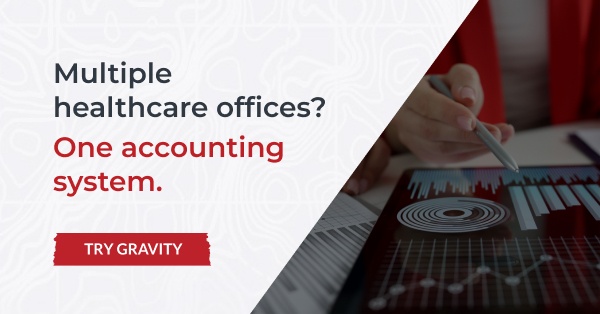How to improve healthcare financial reporting

Healthcare organizations are under increasing pressure to deliver more than basic financial statements. Investors, regulators, and stakeholders now expect timely insights, forward-looking analysis, and transparency into performance across multiple entities. Improving healthcare financial reporting not only builds trust with shareholders but also helps finance teams make smarter, data-driven decisions.
For finance teams, this change means accounting for healthcare organizations has never been more complex — or more important.
Why healthcare financial reporting is changing
In a Forbes article, healthcare technology CEO Abhinav Shashank explained that patients need a holistic, ongoing view of their care. Investors want a similarly comprehensive picture of the financial health of the organizations they support.
Today’s stakeholders are asking questions such as:
- What is the organization’s long-term sustainability?
- What social and environmental impact is being made?
- How resilient is the organization amid cost inflation, labor challenges, and shifting regulatory demands?
Recent industry research confirms these expectations:
- EY’s Health Care Transformation and Growth: 2025 and Beyond shows that rising labor costs and inflation are driving healthcare leaders to demand more real-time, predictive insights powered by analytics.
- Healthcare Finance Trends in 2024: An Updated Look (HealthLeaders) highlights that organizations with the healthiest margins are those investing in automation, operational efficiency, and advanced reporting tools.
- Deloitte’s 2025 US Health Care Outlook finds that nearly 60% of healthcare executives expect revenue growth, while 71% expect profitability improvements — progress that depends heavily on timely, actionable financial reporting.
Healthcare organizations that fail to adapt risk losing credibility with investors, regulators, and other key stakeholders.
Challenges in multi-entity healthcare accounting
For providers with multiple locations — such as medical groups, dental practices, hospice care providers, or senior living facilities — reporting is already challenging. Legacy accounting systems often require finance teams to log in and out of multiple databases, slowing down month-end close and leaving little time for analysis.
These challenges are compounded by:
- Manual data entry across multiple entities
- Difficulty consolidating reports into a single financial view
- Increasing demand for HIPAA compliance and security
- Limited ability to provide real-time insights to leadership
Why entry-level software falls short
Many healthcare organizations start small with just a few offices and use entry-level accounting software. But as they grow, these systems break down:
- Separate databases per entity: Shared expenses (e.g., medical supplies) must be re-entered multiple times.
- Slow reporting: Consolidated financial reports require manual compilation.
- Limited visibility: Decision-makers lack a single source of truth.
As PwC’s Abbas Mooraj explained, leading healthcare systems are moving toward cloud-based enterprise data platforms that provide near real-time analytics and faster insights. For CFOs, the question isn’t whether to modernize but how to do so securely — and in compliance with HIPAA.
Best practices for accounting in healthcare organizations
To meet investor demands and streamline operations, healthcare finance teams should adopt these best practices:
- Centralize financial data with a single multi-entity accounting system.
- Automate manual processes such as billing reminders, reconciliations, and journal entries.
- Prioritize security & compliance with HIPAA-compliant accounting software.
- Leverage analytics & dashboards to provide real-time insights for leadership and investors.
-
Integrate with other systems (EHR, payroll, CRM) to reduce silos and improve efficiency.
How Gravity Software simplifies healthcare accounting
Gravity Software is built specifically to handle the complexities of multi-entity accounting for healthcare organizations:
- Single database across entities: No need to log in and out of multiple systems.
- Shared master files: Eliminate duplicate data entry and reduce errors.
- Drill-down reporting: View consolidated financials or isolate a single entity’s performance.
- Microsoft Power Platform: Automate workflows, integrate with Microsoft 365, and use Power BI for easy-to-understand visuals.
- HIPAA-compliant: Built on Microsoft’s robust security protocols to protect sensitive healthcare data.
With Gravity, healthcare providers can focus less on chasing spreadsheets and more on providing better care — while giving investors and regulators the depth of reporting they demand.
The future of accounting for healthcare organizations
Healthcare accounting is evolving. Stakeholders want richer insights, regulators demand compliance, and organizations are scaling across multiple entities. Outdated tools can’t keep up.
By following best practices and adopting multi-entity healthcare accounting software, organizations can improve reporting, increase efficiency, and respond quickly to changing demands.
Ready to simplify accounting for your healthcare organization? Learn how Gravity Software helps healthcare providers improve financial reporting and streamline multi-entity accounting — schedule a demo today.
Gravity Software
Better. Smarter. Accounting.



